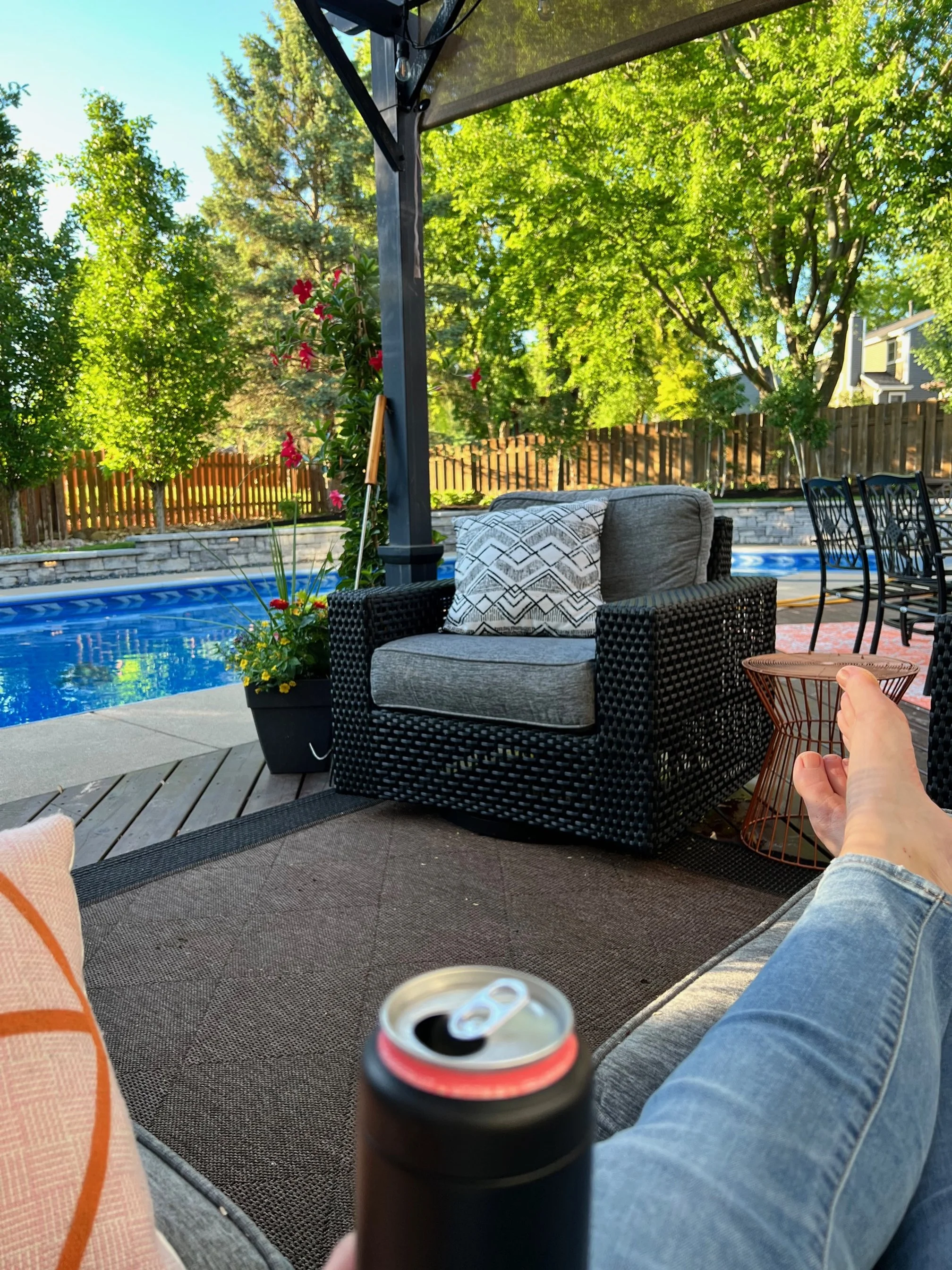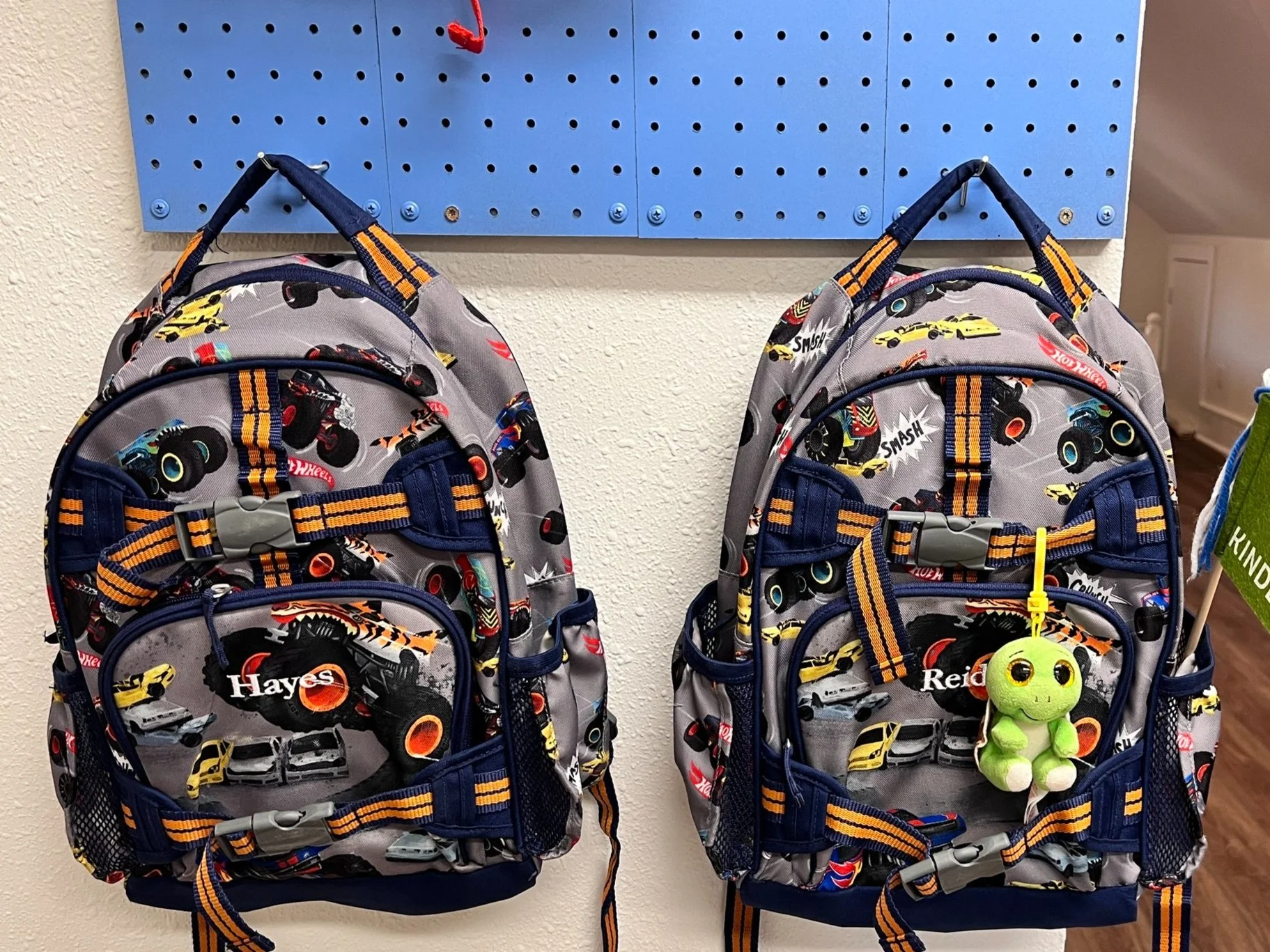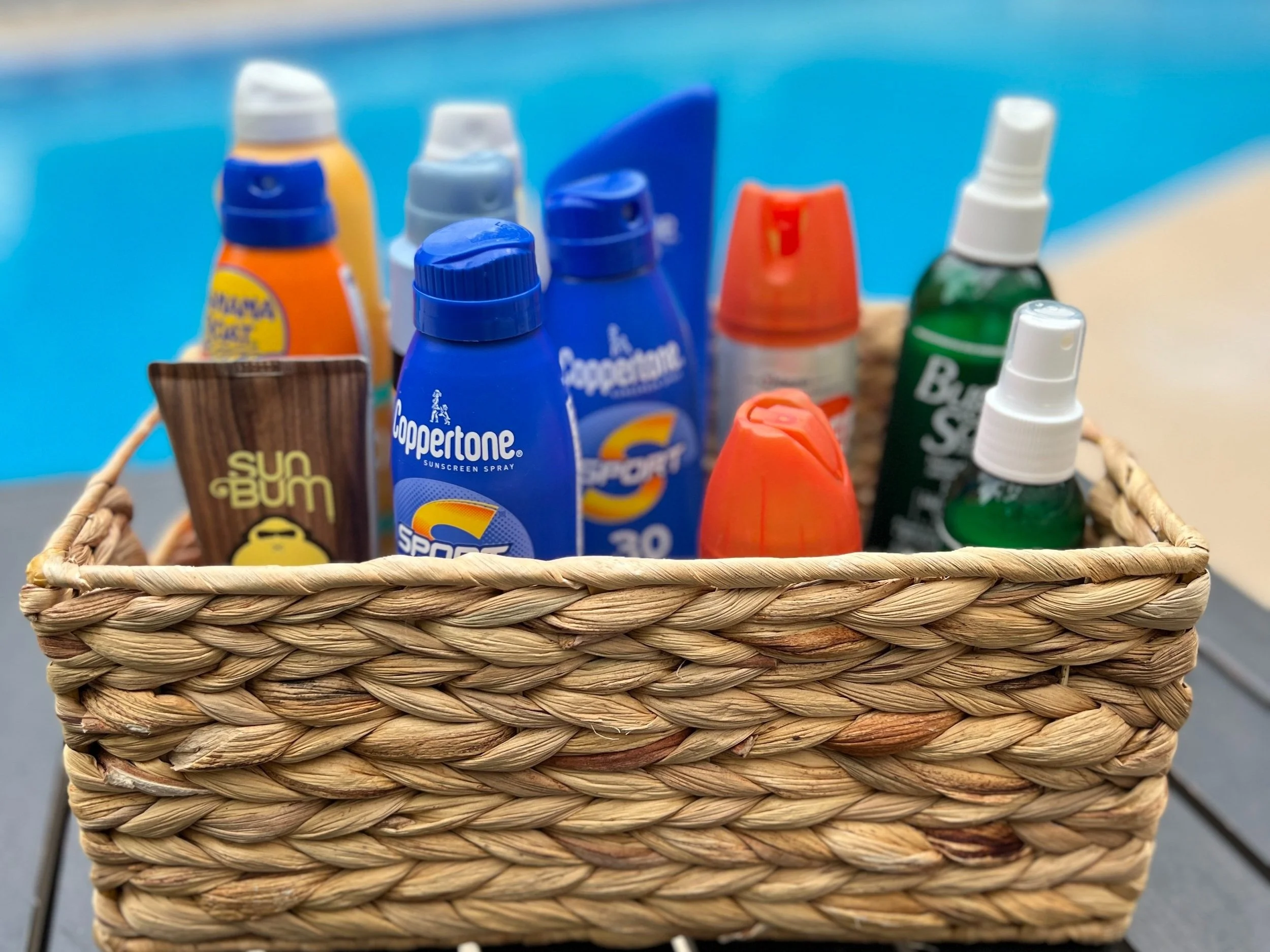Organize Now, Play Later: How to Prepare for a Fun, Carefree Summer with Your Kids
Summer break is almost here bringing with it casual, unstructured days, late bedtimes, and impromptu outings. But let’s be real. Your work schedule and household tasks are not letting up.
I believe summer should be less about stress and scrambling and more about spontaneity and connection. But the key to that carefree vibe? A little planning and smart organization.
In this post, we’ll walk through how to set up your home, schedule, and mindset to welcome a summer full of fun, flexibility, and fewer meltdowns (for kids and parents).
1. Declutter to Make Space for Summer
Before you can fully embrace summer’s light and easy energy, take some time to clear out the clutter from the school year. The less visual and mental noise you’re dealing with, the more room there is for relaxation and creativity.
Where to Start:
School Stuff: Sort through backpacks, lunchboxes, artwork, and supplies. Keep what matters, toss or donate the rest.
Wardrobes: Pack away heavy clothes and shoes. Donate anything outgrown. Make space for swimsuits, shorts, and sandals.
Play Areas: Weed out broken toys or items your kids have outgrown. Rotate in outdoor gear like bubbles, water toys, and chalk.
By simplifying, you’re signaling to yourself and your kids: This is a fresh start.
2. Create a Summer Station.
Kids need access to the things that make summer fun—and parents need a way to keep it all from becoming a mess.
Set up a designated area near the door or garage for summer grab-and-go essentials. Think of it as your summer command center.
Stock it with:
Sunscreen and bug spray
Sunglasses and hats
Water bottles
Towels and swimsuits
Sidewalk chalk, bubbles, balls
A small bin for shoes that can get sandy or wet
Use hooks, cubbies, or clear bins to keep it neat and kid-accessible. Label everything. The easier it is to grab and go, the more likely you are to actually go.
3. Set Up Summer Routines (That Aren’t Rigid).
Summer is a break from strict structure—but some gentle rhythms can keep the household sane. Kids, especially younger ones, thrive when they know what to expect.
Instead of strict schedules, try creating flexible routines anchored by daily rituals.
Examples:
Morning Routine: Breakfast, get dressed, pack bag for the day.
Afternoon Quiet Time: Reading, independent play, or rest—even just 30 minutes can help everyone reset.
Evening Routine: Outdoor play, dinner, bath, story time.
Use a visual schedule for younger kids or a whiteboard for older ones. It helps cut down on repetitive questions and empowers kids to manage their own time.
4. Make a Family Summer Bucket List
One of the best ways to make summer feel full (without overbooking) is to brainstorm a list of fun things you want to do as a family.
Sit down together and ask: What would make this summer feel special?
Include a mix of:
Big outings (zoo, water park, camping trip)
Easy wins (ice cream after dinner, backyard camping)
Creative ideas (build a fort, paint rocks, make a time capsule)
Community events (library story time, farmers markets, free concerts)
5. Meal Plan for Simplicity.
With kids home all day, meals and snacks can start to feel endless. A little planning now saves you from constant kitchen chaos later.
Tips for Streamlining Summer Meals:
Create a snack station. Fill a fridge drawer or basket with parent-approved snacks kids can grab on their own.
Rotate simple lunches. Sandwiches, wraps, fruit, pasta salad—keep it predictable to cut down on decision fatigue.
Prep ahead. Chop fruits and veggies on Sunday. Freeze smoothie packs. Cook big batches of grains or proteins.
Theme nights help. Taco Tuesdays, Pizza Fridays, or Grill Sundays make meal planning easier and give kids something to look forward to.
6. Organize Outdoor Gear.
When everything has a home, getting outside is easier—and coming back in doesn’t feel like a disaster.
Try This:
Hang a mesh bag near the door for pool toys or water balloons.
Use labeled totes in the garage for sports gear, camping supplies, and yard games.
Keep a cooler bag stocked and ready to go for park days or road trips.
Clean and inspect bikes, helmets, and scooters before summer gets in full swing.
Teach kids where things go and how to put them back. Summer fun is more fun when you’re not in constant clean-up mode.
7. Create Boredom Busters.
Yes, summer should be unstructured. But you’ll still hear the inevitable: “I’m booooored!”
Instead of defaulting to screens, build a “boredom buster” system filled with engaging, low-mess activities.
Some Ideas:
A “boredom jar” filled with activity prompts (build a Lego city, draw a comic, have a dance party)
A shelf or drawer with puzzles, coloring books, sticker sets, card games
Access to craft supplies in labeled bins (markers, scissors, glue sticks, scrap paper)
A library basket with new books each week
By making these resources easy to find and use, you give your kids options without needing to play cruise director every minute.
8. Plan Downtime and Device-Free Times.
Even with fun plans, kids need unstructured time to rest and recharge. So do parents.
Block out “slow” days on your calendar where you don’t have to be anywhere. Encourage creative play, outdoor exploration, or simply lounging.
Also consider:
Device-free afternoons
Tech-free family dinners
No-screen mornings to start the day with presence instead of pixels
These boundaries create space for connection and real rest—not just distraction.
9. Don’t Forget to Prepare Yourself.
Summer isn’t just for kids. Parents need some soul-filling moments, too.
Organize your own self-care:
Set up a summer reading list
Plan a few friend outings or solo coffee breaks
Get your calendar in order—vacations, camps, workdays—so you’re not constantly reacting
When you feel calm and prepared, your whole family feels it. Your energy sets the tone.
Final Thoughts: A Little Prep, a Lot More Play
The beauty of summer isn’t in perfect plans or Pinterest-worthy crafts. It’s in the small, joy-filled moments. By getting organized early—decluttering, setting up routines, creating systems—you pave the way for more of those moments to happen organically. You spend less time searching for the sunscreen or stressing about meals… and more time actually enjoying your children. And isn’t that what summer is all about?
Ready to Simplify Your Summer?
If you’re feeling overwhelmed by the idea of managing summer chaos, you don’t have to do it alone. As a professional organizer, I help families create systems that work with their lives—not against them.
Whether you need help setting up a summer command center, creating kid-friendly organizing routines, or clearing space for more joy, I’m here to help.
Let’s make this summer the one where calm meets carefree—and where your whole family gets to truly enjoy the season.







